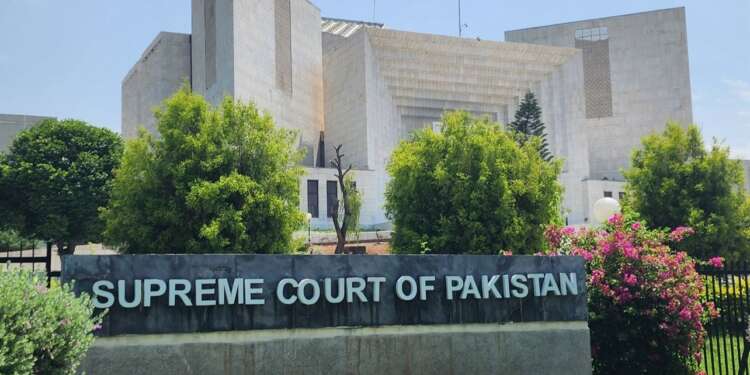The International Federation of Journalists (IFJ) has urged Pakistan’s Supreme Court to review the controversial Prevention of Electronic Crimes Act (PECA), warning that the law is being systematically used to silence journalists and suppress dissent. In a letter sent to Chief Justice Yahya Afridi, also copied to the Prime Minister Shehbaz Sharif the IFJ condemned the growing misuse of PECA against journalists and called for urgent judicial intervention.
A high-level delegation of journalists and media union leaders submitted the letter in person during a meeting with senior court officials last week. The delegation included representatives from the Pakistan Federal Union of Journalists (PFUJ), Rawalpindi-Islamabad Union of Journalists (RIUJ), and the Press Association of the Supreme Court (PAS).
34 documented Press Freedom violations cited
The IFJ, which represents over 600,000 journalists worldwide, cited 34 serious press freedom violations in Pakistan between May 2024 and April 2025 including seven targeted killings, along with numerous cases of harassment, threats, and legal persecution under PECA. The organization argues that vague provisions in the law, such as those enabling third-party complaints and bypassing High Court oversight, are undermining constitutional protections and enabling politically motivated crackdowns.
“PECA is being weaponized to criminalize journalism,” the letter states, warning that Pakistan’s current digital laws violate both Article 19 of the Constitution and international obligations under the ICCPR.
Journalists across Pakistan have long been protesting PECA for its chilling effect on free speech. The law, introduced in 2016 and amended in recent years, was initially intended to curb cybercrime, but press freedom groups say it is now being used as a tool of repression. The IFJ’s intervention adds significant international pressure to growing domestic calls for reform.
During the meeting, PFUJ leaders emphasized the need for the judiciary to engage directly with journalists and civil society stakeholders before interpreting or enforcing digital speech laws. They also met separately with prominent human rights lawyer Imaan Mazari to discuss legal strategies for defending media freedom.
“We’ve seen journalists jailed, surveilled, and attacked for doing their jobs,” said Shakeel Ahmed, PFUJ Secretary General. “We’re calling on the courts to step up and protect the Constitution.”
The letter’s delivery follows increasing public and legal scrutiny over PECA, especially in cases where it’s been used to target investigative reporters and social media commentators. Rights organizations have noted a spike in defamation charges, gag orders, and attempts to criminalize political criticism online.
As the journalist community awaits the Chief Justice’s response, the PFUJ has reaffirmed its commitment to legal reform, media safety, and justice for persecuted journalists. If the Supreme Court takes up the matter, it could mark a turning point in Pakistan’s struggle for digital rights and press freedom.




